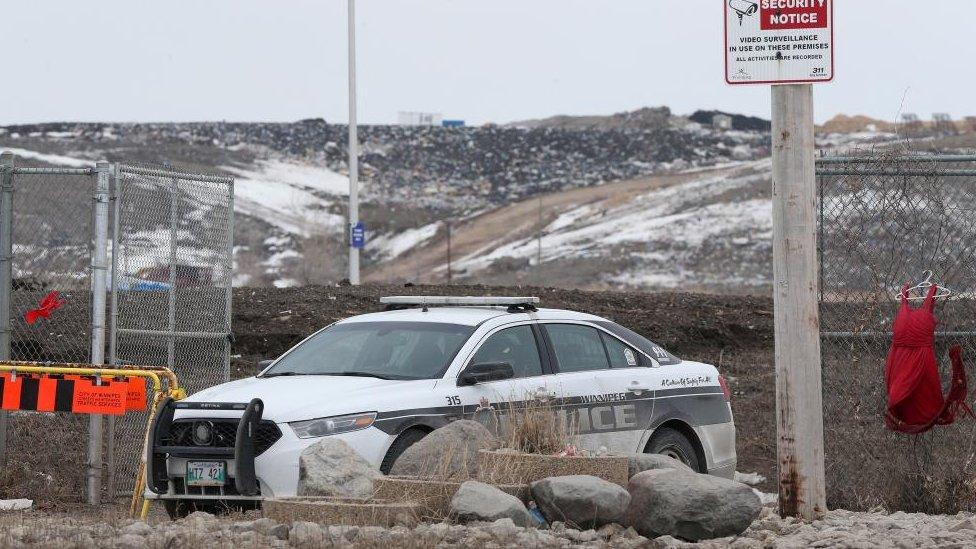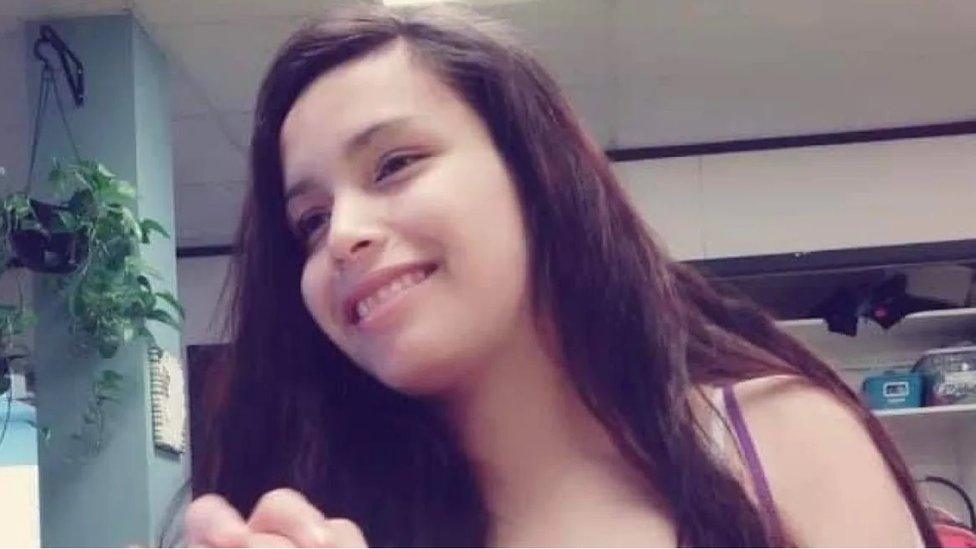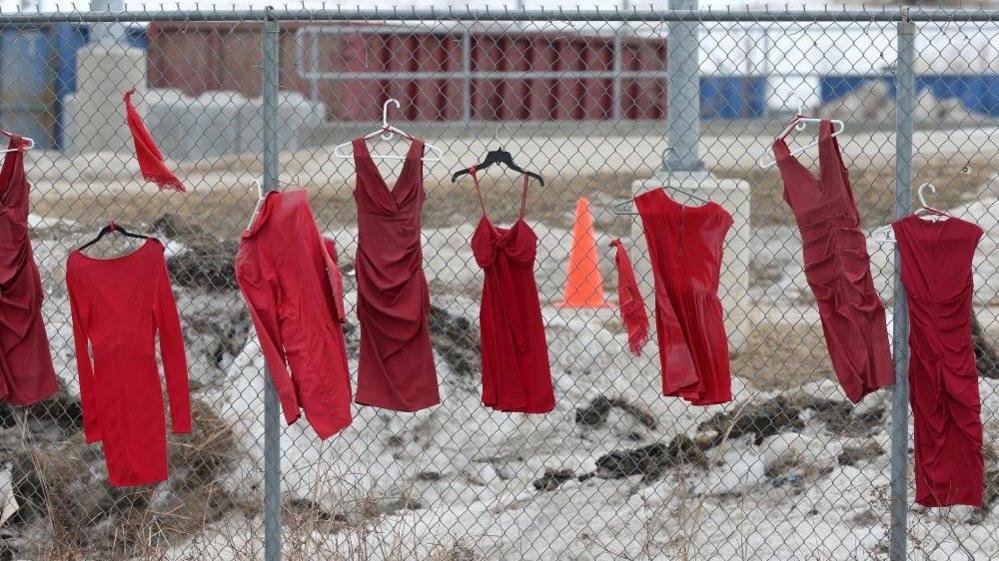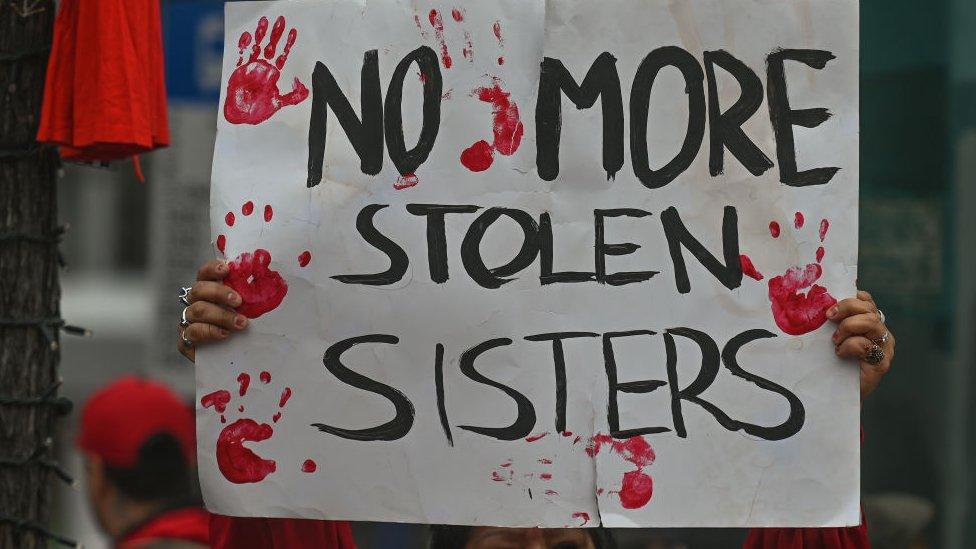The $135m cost of finding an alleged killer’s victims
- Published

Winnipeg police found the remains of Rebecca Cantois at Brady landfill (photographed here). It is believed that the remains of two other indigenous women were taken to Prairie Green, another landfill south of the city
It will take three years and cost up to C$184m ($135m; £109m) to search a Canadian landfill for the remains of two indigenous women.
Indigenous leaders in the province of Manitoba released the results of a feasibility study on Friday and called for the search to take place.
The women's families have put pressure on officials to find their remains.
Both women are believed to be victims of an alleged serial killer.
Caution: This article contains upsetting content.
"If a search is not carried out, it will demonstrate to all First Nations across Canada that this government condones the despairing act of disposing of First Nation women in landfills," said Cathy Merrick, grand chief of the Assembly of Manitoba Chiefs, during a news conference on Friday.
She said finding the remains of the two women will bring closure to their families.
"These women were all loved, they were cherished," Ms Merrick said.
Canada's federal government paid for the study after Winnipeg police said they would not search the site.
Police believe the remains of Morgan Beatrice Harris, 39, and Marcedes Myran, 26, are at the Prairie Green landfill near Winnipeg. Both women are members of the Long Plain First Nation.
They are among four indigenous women believed to have been killed by Jeremy Skibicki, who was charged last December with four counts of first-degree murder.
He is also believed to have killed 24-year-old Rebecca Cantois and an unidentified woman who has been given the name Buffalo Woman.
The remains of Ms Cantois were found at another landfill 16 May 2022.
Police said last year that they believe the remains of Ms Harris and Ms Myran were left in a garbage bin three days apart in May 2022, with the contents sent to Prairie Green.
But they said it would not be possible to search for Ms Harris and Ms Myran because too much time had passed and because the scale of the area is too big.
According to a summary of the study findings released on Friday, a search would be lengthy and costly - between C$84m to C$184m - and may come with "considerable risks" due to exposure to toxic chemicals.
There is also no guarantee the women would be found, the study said.
But failing to conduct a search would cause "considerable distress" to the families of the two women.
Ms Myran's sister, Jorden, said the women deserve to rest in a grave.
"They're not trash. It shouldn't be a question whether they search or not."
It is unclear who would fund the search should it go ahead.
A spokesperson for federal Crown-Indigenous Relations Minister Marc Miller told the BBC that his office is reviewing the study.
"We need to make sure our work is done right, in a culturally-sensitive and trauma-informed manner, and keeping at heart the families, survivors, and communities," spokesperson Aïssa Diop said in an email.
Prime Minister Justin Trudeau pledges to tackle violence against indigenous women
Indigenous women in Canada are 12 times more likely to be murdered or go missing than other women, according to a 2019 inquiry, external.
Nearly one year after the discovery of Ms Cantois' remains at Brady landfill, police in Winnipeg discovered the body of another indigenous woman - 33-year-old Linda Mary Beardy - at that same location.
It is not believed the two deaths are related.
Related topics
- Published1 December 2022

- Published5 April 2023

- Published12 December 2022
